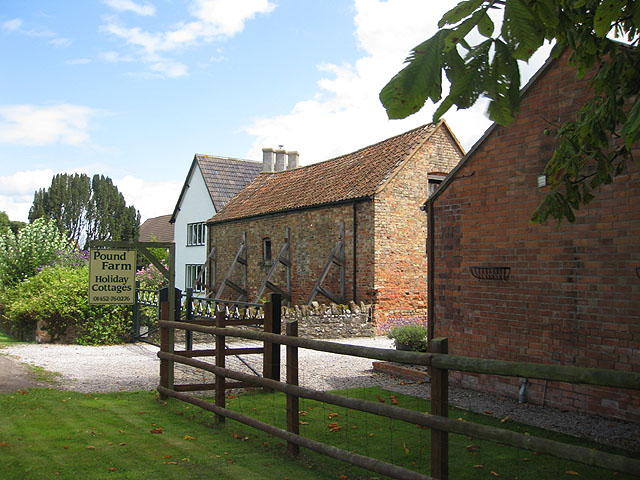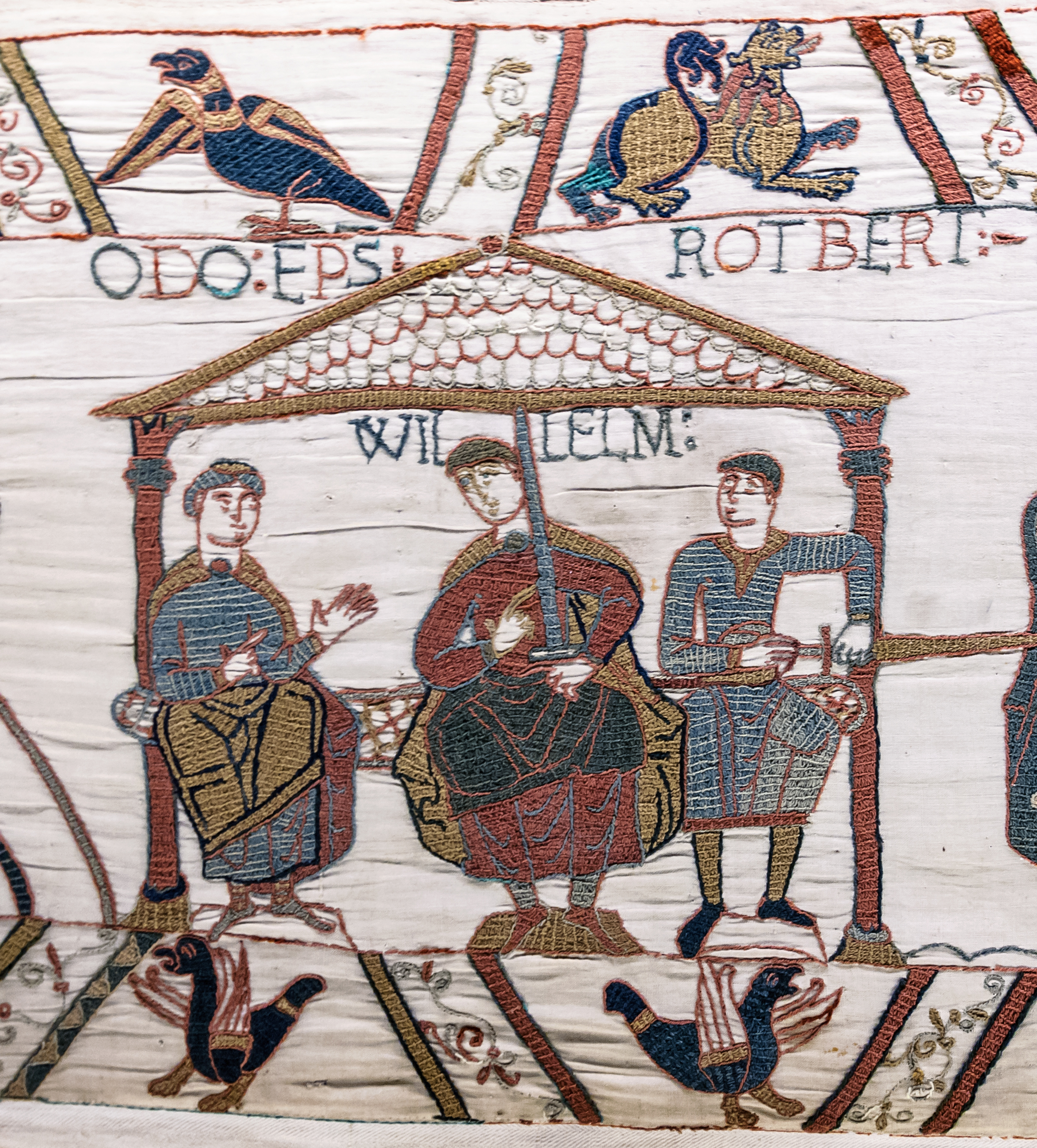|
Croyde Bay
Croyde is a village on the west-facing coastline of North Devon, England. The village lies on the South West Coast Path near to Baggy Point, which is owned by the National Trust. It lies within the North Devon Coast Area of Outstanding Natural Beauty. Croyde village and its beach faces the Atlantic Ocean near the western limit of the Bristol Channel. Croyde Stream runs through the village, eventually leading to the beach. The centre of the village is roughly at the intersection of Hobbes' Hill, Jones' Hill and St. Mary's Road. At this spot, Croyde Bridge carries the road over the stream. Public services are provided by the North Devon District Council (NDDC) based in Barnstaple. The village is in the civil parish of Georgeham, and for ecclesiastical purposes within the Diocese of Exeter. Today The village has several small campsites, a small retail area and two large holiday parks; Croyde Bay Holiday Resort (operated by UNISON) and ''Ruda Holiday Park'', operated by Parkdean ... [...More Info...] [...Related Items...] OR: [Wikipedia] [Google] [Baidu] |
Georgeham
Georgeham is a village and civil parish near Croyde, in North Devon. The appropriate electoral ward is termed Georgeham and Mortehoe with total population at the 2011 census of 3,748. Georgeham is an historic village lying close to some of the most dramatic beaches of the North Devon Coast Area of Outstanding Natural Beauty which are flanked by the rocky headlands of Baggy Point and Saunton Down, although there are no views of the sea or coastline from the village itself. The character of the village is typically rural. The majority of the historic development in the village is east and south-west of the church. The village is also characterized by thatched cottages arranged in an irregular fashion along narrow lanes. There is a Victorian village school, a medieval church and two 17th Century public houses, the main one in the middle of the village, The King's Arms, and another one up a small lane, The Rock. Pronunciation is a controversial issue. Traditionalists maintain th ... [...More Info...] [...Related Items...] OR: [Wikipedia] [Google] [Baidu] |
Vacation Property
A holiday cottage, holiday home, vacation home, or vacation property is accommodation used for holiday vacations, corporate travel, and temporary housing often for less than 30 days. Such properties are typically small homes, such as cottages, that travelers can rent and enjoy as if it were their own home for the duration of their stay. The properties may be owned by those using them for a vacation, in which case the term second home applies; or may be rented out to holidaymakers through an agency. Terminology varies among countries. In the United Kingdom this type of property is usually termed a ''holiday home'' or ''holiday cottage''; in Australia, a ''holiday house/home'', or ''weekender''; in New Zealand, a ''bach'' or ''crib''. Characteristics and advantages Today's global short-term vacation property rental market is estimated to be worth $100 billion. The holiday cottage market in both Canada and the UK is highly competitive – and big business. Numbers Unite ... [...More Info...] [...Related Items...] OR: [Wikipedia] [Google] [Baidu] |
World War II
World War II or the Second World War, often abbreviated as WWII or WW2, was a world war that lasted from 1939 to 1945. It involved the vast majority of the world's countries—including all of the great powers—forming two opposing military alliances: the Allies and the Axis powers. World War II was a total war that directly involved more than 100 million personnel from more than 30 countries. The major participants in the war threw their entire economic, industrial, and scientific capabilities behind the war effort, blurring the distinction between civilian and military resources. Aircraft played a major role in the conflict, enabling the strategic bombing of population centres and deploying the only two nuclear weapons ever used in war. World War II was by far the deadliest conflict in human history; it resulted in 70 to 85 million fatalities, mostly among civilians. Tens of millions died due to genocides (including the Holocaust), starvation, ma ... [...More Info...] [...Related Items...] OR: [Wikipedia] [Google] [Baidu] |
Medieval Period
In the history of Europe, the Middle Ages or medieval period lasted approximately from the late 5th to the late 15th centuries, similar to the post-classical period of global history. It began with the fall of the Western Roman Empire and transitioned into the Renaissance and the Age of Discovery. The Middle Ages is the middle period of the three traditional divisions of Western history: classical antiquity, the medieval period, and the modern period. The medieval period is itself subdivided into the Early, High, and Late Middle Ages. Population decline, counterurbanisation, the collapse of centralized authority, invasions, and mass migrations of tribes, which had begun in late antiquity, continued into the Early Middle Ages. The large-scale movements of the Migration Period, including various Germanic peoples, formed new kingdoms in what remained of the Western Roman Empire. In the 7th century, North Africa and the Middle East—most recently part of the Eastern Roma ... [...More Info...] [...Related Items...] OR: [Wikipedia] [Google] [Baidu] |
Robert, Count Of Mortain
Robert, Count of Mortain, 2nd Earl of Cornwall (–) was a Norman nobleman and the half-brother (on their mother's side) of King William the Conqueror. He was one of the very few proven companions of William the Conqueror at the Battle of Hastings and as recorded in the Domesday Book of 1086 was one of the greatest landholders in his half-brother's new Kingdom of England. Life Robert was the son of Herluin de Conteville and Herleva of Falaise and brother of Odo of Bayeux.Detlev Schwennicke, ''Europäische Stammtafeln: Stammtafeln zur Geschichte der Europäischen Staaten'', Neue Folge, Band III Teilband 4 (Marburg, Germany: Verlag von J. A. Stargardt, 1989), Tafel 694B Robert was born in Normandy, a half-brother of William the Conqueror. and was probably not more than a year or so younger than his brother Odo, born . About 1035, Herluin, as Vicomte of Conteville, along with his wife Herleva and Robert, founded Grestain Abbey. Count of Mortain Around 1049 his brother Duke Willia ... [...More Info...] [...Related Items...] OR: [Wikipedia] [Google] [Baidu] |
Erchenbald
Erchenbald or Archembald was a mesne lord listed in the Domesday Book of 1086 as a tenant of nine manors in Devon and Cornwall, England. He is believed to be the first English ancestor of the prominent Fleming family. Landholdings The Domesday book records that Erchenbald held three manors in Cornwall and six in Devon, all as tenant of Robert, Count of Mortain,Thorn, Caroline & Frank, (eds.) ''Domesday Book Vol. 9: Devon''. Part 2, 15,11. Note: not in the printed edition of 1985, but included in version 1a of the Devon Notes, downloadable as an rtf file from a link on https://hydra.hull.ac.uk/resources/hull:535 who was a half-brother of William the Conqueror and held over one hundred west country manors as tenant-in-chief. Erchenbald's landholdings recorded in the Domesday Book are as follows. In Cornwall: *Brea, Cornwall (in Connerton Hundred) *Avalde, Cornwall (in Fawton Hundred) *Bodbrane, Cornwall (in Fawton Hundred) In Devon: *Culleigh, in the parish of Frithelstock in Shebbea ... [...More Info...] [...Related Items...] OR: [Wikipedia] [Google] [Baidu] |
Domesday Book
Domesday Book () – the Middle English spelling of "Doomsday Book" – is a manuscript record of the "Great Survey" of much of England and parts of Wales completed in 1086 by order of King William I, known as William the Conqueror. The manuscript was originally known by the Latin name ''Liber de Wintonia'', meaning "Book of Winchester", where it was originally kept in the royal treasury. The '' Anglo-Saxon Chronicle'' states that in 1085 the king sent his agents to survey every shire in England, to list his holdings and dues owed to him. Written in Medieval Latin, it was highly abbreviated and included some vernacular native terms without Latin equivalents. The survey's main purpose was to record the annual value of every piece of landed property to its lord, and the resources in land, manpower, and livestock from which the value derived. The name "Domesday Book" came into use in the 12th century. Richard FitzNeal wrote in the ''Dialogus de Scaccario'' ( 1179) that the book ... [...More Info...] [...Related Items...] OR: [Wikipedia] [Google] [Baidu] |
History Of Anglo-Saxon England
Anglo-Saxon England or Early Medieval England, existing from the 5th to the 11th centuries from the end of Roman Britain until the Norman Conquest, Norman conquest in 1066, consisted of various Anglo-Saxons, Anglo-Saxon kingdoms until 927, when it was united as the Kingdom of England by King Æthelstan (r. 927–939). It became part of the short-lived North Sea Empire of Cnut the Great, a personal union between England, Denmark and Norway in the 11th century. The Anglo-Saxons migrated to England from mainland northwestern Europe after the Roman Empire abandoned Britain at the beginning of the fifth century. Anglo-Saxon history thus begins during the period of sub-Roman Britain following the end of Roman Britain, Roman control, and traces the establishment of List of Anglo-Saxon monarchs and kingdoms, Anglo-Saxon kingdoms in the 5th and 6th centuries (conventionally identified as Heptarchy, seven main kingdoms: Northumbria, Mercia, Kingdom of the East Angles, East Anglia, kingdom ... [...More Info...] [...Related Items...] OR: [Wikipedia] [Google] [Baidu] |
Cornish Language
Cornish (Standard Written Form: or ) , is a Southwestern Brittonic language, Southwestern Brittonic language of the Celtic language family. It is a List of revived languages, revived language, having become Extinct language, extinct as a living community language in Cornwall at the Last speaker of the Cornish language, end of the 18th century. However, knowledge of Cornish, including speaking ability to a certain extent, continued to be passed on within families and by individuals, and Cornish language revival, a revival began in the early 20th century. The language has a growing number of second language speakers, and a very small number of families now raise children to speak revived Cornish as a first language. Cornish is currently recognised under the European Charter for Regional or Minority Languages, and the language is often described as an important part of Cornish identity, culture and heritage. Along with Welsh language, Welsh and Breton language, Breton, Cornish is ... [...More Info...] [...Related Items...] OR: [Wikipedia] [Google] [Baidu] |
Viking
Vikings ; non, víkingr is the modern name given to seafaring people originally from Scandinavia (present-day Denmark, Norway and Sweden), who from the late 8th to the late 11th centuries raided, pirated, traded and settled throughout parts of Europe.Roesdahl, pp. 9–22. They also voyaged as far as the Mediterranean Sea, Mediterranean, North Africa, Volga Bulgaria, the Middle East, and Greenland, North America. In some of the countries they raided and settled in, this period is popularly known as the Viking Age, and the term "Viking" also commonly includes the inhabitants of the Scandinavian homelands as a collective whole. The Vikings had a profound impact on the Early Middle Ages, early medieval history of Scandinavia, the History of the British Isles, British Isles, France in the Middle Ages, France, Viking Age in Estonia, Estonia, and Kievan Rus'. Expert sailors and navigators aboard their characteristic longships, Vikings established Norse settlem ... [...More Info...] [...Related Items...] OR: [Wikipedia] [Google] [Baidu] |
Celts
The Celts (, see pronunciation for different usages) or Celtic peoples () are. "CELTS location: Greater Europe time period: Second millennium B.C.E. to present ancestry: Celtic a collection of Indo-European peoples. "The Celts, an ancient Indo-European people, reached the apogee of their influence and territorial expansion during the 4th century bc, extending across the length of Europe from Britain to Asia Minor."; . " e Celts, were Indo-Europeans, a fact that explains a certain compatibility between Celtic, Roman, and Germanic mythology."; . "The Celts and Germans were two Indo-European groups whose civilizations had some common characteristics."; . "Celts and Germans were of course derived from the same Indo-European stock."; . "Celt, also spelled Kelt, Latin Celta, plural Celtae, a member of an early Indo-European people who from the 2nd millennium bce to the 1st century bce spread over much of Europe."; in Europe and Anatolia, identified by their use of Celtic langua ... [...More Info...] [...Related Items...] OR: [Wikipedia] [Google] [Baidu] |
Summer Solstice
The summer solstice, also called the estival solstice or midsummer, occurs when one of Earth's poles has its maximum tilt toward the Sun. It happens twice yearly, once in each hemisphere ( Northern and Southern). For that hemisphere, the summer solstice is the day with the longest period of daylight and shortest night of the year, when the Sun is at its highest position in the sky. Within the Arctic circle (for the Northern hemisphere) or Antarctic circle (for the Southern), there is continuous daylight around the summer solstice. The opposite event is the winter solstice. The summer solstice occurs during summer. This is the June solstice (usually 20 or 21 June) in the Northern hemisphere and the December solstice (usually 21 or 22 December) in the Southern. On the summer solstice, Earth's maximum axial tilt toward the Sun is 23.44°. Likewise, the Sun's declination from the celestial equator is 23.44°. Since prehistory, the summer solstice has been seen as a significant ... [...More Info...] [...Related Items...] OR: [Wikipedia] [Google] [Baidu] |









